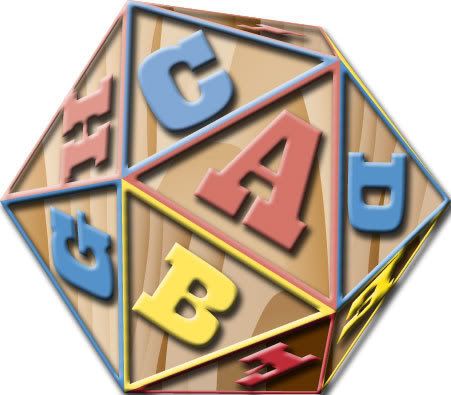I've complained fairly recently in the past about being terrible at Go. That hasn't changed. I'm ranked at 29? Kyu on the KGS. That being as it is, why do I keep playing? What is it about Go that makes me play again. Certainly chess doesn't have that kind of pull on me - and neither does any other abstract game for that matter. In fact, I have a rather strong dislike for abstract games in general...but why not Go?
Log it in the "Mysteries of the Unexplained."
I've been slowly working through the Sensei Library beginner section http://senseis.xmp.net/?BeginnerStudySection and while some of it makes no sense to me, I think I have improved because of it. My absolute highlight was in the last ranked game I played on KGS, I invaded my opponents territory and consciously made a "live" shape that I had seen on the Sensei Library. Granted, had I been playing against a more experienced opponent, it probably never would have worked - it would have been too obvious - but for me it was an important victory for my morale (btw, I still lost that game by a huge margin).
All in all, it is strange that I should keep going with something at which I am really quite terrible. Perhaps I'm finally getting to the point of being "teachable".
Subscribe to:
Post Comments (Atom)

5 comments:
Played on a 19x10 board, Go has infinite strategy. The situation evolves as the game progresses. Seemingly unrelated moves can have serious affects on positions half the board away. Go is intuition, shape, pattern, flow.
Chess is almost 100% tactics. It is complex in that each piece moves differently, but its complexity does not evolve. The flow of the game is very direct with the move of each piece.
I have seen math articles on Chess and Go. They say the complexity of Chess is 10^100, and that of Go is 10^700.
Er, 19x19.
Oh yes, I saw that study...it said that the complexity of a woman is 10^1000...so I guess us guys'll spend a lifetime figuring them out too...
I think, and I'm no better than you at Go, that learning Go is similar to a study I just saw on learning language. At first, the game appears as just a mass of stones, though you may be able to understand some simple localized moves (though not many). As time progresses, you can start to understand some basic shapes (words) emerging from the chaos. From there, you can start to build your vocabulary(shape library), and understand when certain words (shapes) are used. You'll also start to pick up the communicated emotion (Offensive moves vs defensive moves vs territory gaining moves, etc) that certain plays have.
I think it all just comes down to continuing to play and read and study, and eventually you'll be able to "speak the language". You may never become a poet or playwright, but you'll be able to hold a conversation.
Was that enough metaphors?
Go to kiseido.com and and order:
Lessons on the Fundamentals of Go
and
Opening Theory Made Easy.
The problem, early on, is that the moves don't parse. You're stuck doing all this crazy, like, attempts to calculate every possible move and you go combinatorially insane.
Lessons on the Fundamentals of Go kind of teaches you how to think about certain moves - nothing to memorize, but what certain basic moves mean.
I keep recommending this book on this board - I've given it to a lot of my friends as they're learning go and they immediately get huge ratings jumps and claim they *see* the game better.
There's also really good free stuff at gobase.org.
Post a Comment